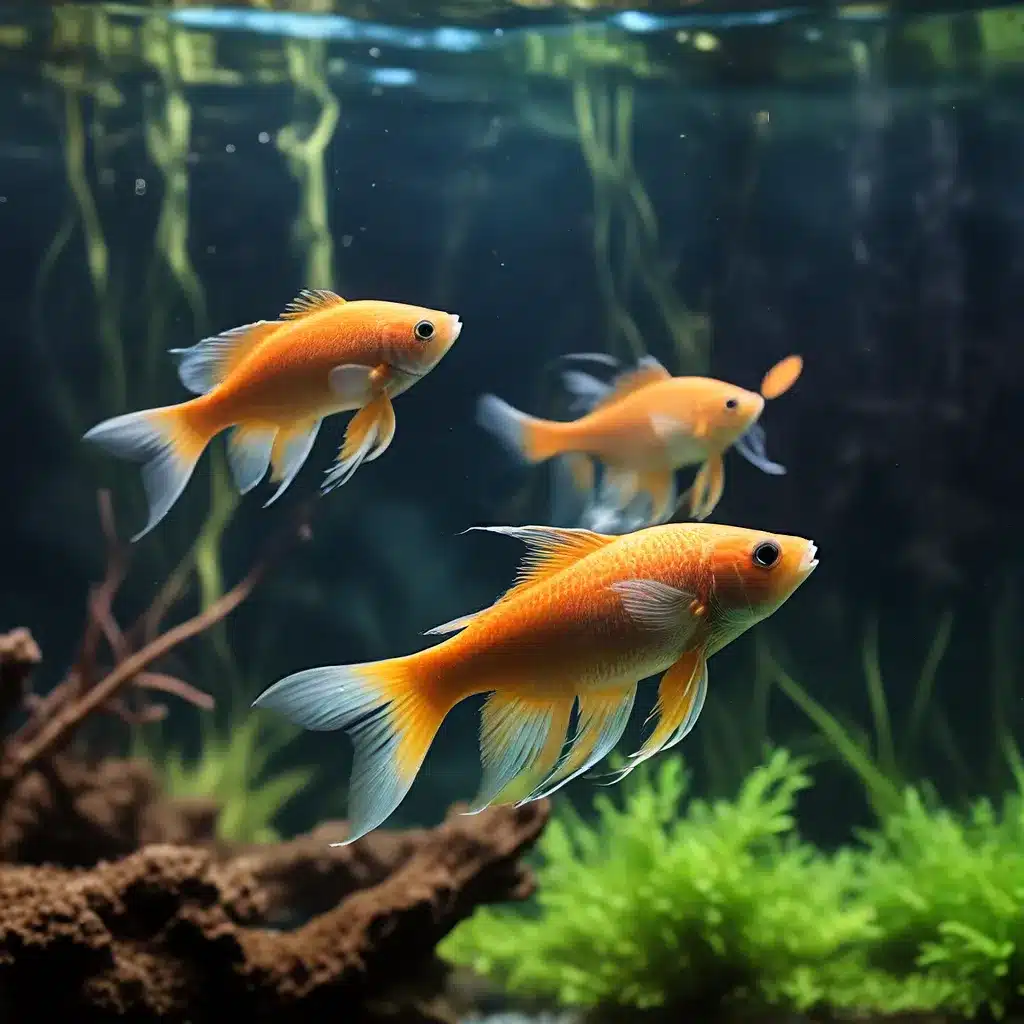
Exploring the Fascinating World of Your Aquarium Inhabitants
As aquarium enthusiasts, we are often captivated by the vibrant colors, graceful movements, and intriguing behaviors of the fish that inhabit our carefully crafted underwater ecosystems. While it’s easy to simply enjoy the aesthetic beauty of our aquatic companions, taking the time to truly understand their unique traits and needs can unlock a whole new level of appreciation and success in our aquarium-keeping endeavors.
Research has shown that many hobbyists are initially drawn to the hobby by the sheer fascination of the fish themselves, rather than just the challenge of aquascaping or the latest technological gadgets. By delving deeper into the natural history, behaviors, and environmental preferences of our aquarium inhabitants, we can create more suitable and enriching living conditions, leading to healthier, happier, and longer-lived fish.
Understanding Fish Physiology and Behavior
One of the first steps in truly getting to know your aquarium fish is to research their physiology and natural behaviors. While it’s important to be aware of basic care requirements, such as diet and tank size, a deeper understanding of your fish’s adaptations and instincts can provide invaluable insights.
Physiology: Examining the physical characteristics of your fish, such as their body shape, fin structure, and sensory organs, can reveal important information about their native habitats and preferred lifestyles. For example, fish with streamlined bodies and powerful fins may be well-suited for strong currents, while those with barbels or labyrinth organs may thrive in stagnant or low-oxygen environments.
Behavior: Closely observing your fish’s natural behaviors, such as feeding, schooling, and territorial interactions, can provide clues about their social dynamics and environmental preferences. Understanding the evolutionary drivers behind these behaviors can help you create an aquarium setup that caters to their unique needs and encourages natural, stress-free interactions.
Leveraging Scientific Resources
One of the most valuable resources for aquarium hobbyists is the wealth of scientific information available online and in published literature. Websites like FishBase offer detailed profiles on thousands of fish species, including their distribution, habitat, diet, and reproductive behaviors. By immersing yourself in this data, you can gain a deeper appreciation for the diverse adaptations and ecological roles of the fish in your aquarium.
Beyond just reading about fish species, you can also explore scientific research on topics such as gut content analysis, which can provide insights into a fish’s natural dietary preferences. Additionally, information about the specific collection sites and water parameters of wild-caught specimens can help you recreate the optimal conditions for your captive fish.
Firsthand Observation and Exploration
While online resources are invaluable, nothing quite compares to the firsthand experience of observing fish in their natural habitats. Whether it’s a local creek, river, or a tropical reef, witnessing the behaviors and interactions of fish in the wild can offer unique perspectives and inspire new aquarium-keeping approaches.
For example, becoming a certified SCUBA diver can grant you access to diverse underwater ecosystems, where you can study the intricate relationships between fish and their environment. Even a simple trip to a local pond or stream can reveal fascinating insights about the adaptations and survival strategies of the fish that inhabit these ecosystems.
Sharing Your Knowledge and Experiences
As you delve deeper into the world of aquarium fish behavior and care, it’s important to share your newfound knowledge and insights with the broader aquarium community. Whether it’s through online forums, local club meetings, or even your own blog or social media channels, sharing your experiences and expertise can help inspire and educate other hobbyists.
Engaging with the aquarium community not only benefits your fellow enthusiasts but can also contribute to the overall advancement of the hobby. By sharing your observations, techniques, and any breakthroughs in fish husbandry, you can help unlock the secrets of aquarium fish behavior and inspire others to develop a deeper appreciation for their aquatic inhabitants.
Putting it All Together: Creating Enriching Aquarium Environments
Armed with a comprehensive understanding of your fish’s physiology, behavior, and natural habitat preferences, you can now apply this knowledge to create truly remarkable aquarium setups that cater to the specific needs of your aquatic inhabitants.
From carefully selecting appropriate tank sizes and decor to fine-tuning water parameters and filtration systems, every aspect of your aquarium should be designed to mimic the natural conditions that your fish would thrive in. By doing so, you can promote natural behaviors, reduce stress, and ensure the long-term health and well-being of your aquatic companions.
Remember, the key to unlocking the secrets of aquarium fish behavior lies in your willingness to dive deeper, observe closely, and share your findings with the broader community. By embracing this holistic approach to aquarium keeping, you’ll not only enjoy a more captivating and rewarding hobby but also contribute to the ongoing advancement of aquarium science and conservation.
Conclusion: Cultivating a Deeper Connection with Your Aquatic Inhabitants
As aquarium enthusiasts, we are privileged to have the opportunity to observe and care for these fascinating creatures up close. By taking the time to truly understand the unique adaptations, behaviors, and ecological roles of our aquarium inhabitants, we can create environments that not only showcase their beauty but also allow them to thrive and express their natural instincts.
Whether it’s researching scientific data, exploring wild habitats, or sharing your knowledge with others, the journey of discovering the secrets of aquarium fish behavior is a richly rewarding one. So dive in, stay curious, and let your fascination with these underwater wonders guide you on a path of deeper understanding and appreciation for the aquatic life that graces our carefully crafted aquariums.

